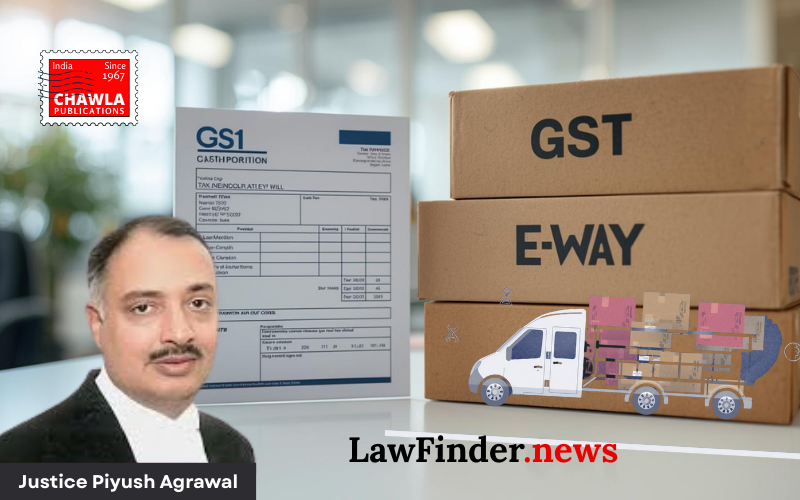Allahabad High Court Upholds Seizure and Penalty for GST Violations by Nippon Tubes
News Report:
In a significant judgment, the Allahabad High Court, presided over by Justice Piyush Agrawal, has dismissed the writ petition filed by Nippon Tubes Limited against the State of Uttar Pradesh, thereby upholding the seizure and penalty imposed for violations of the Goods and Services Tax (GST) rules. The case, registered as Writ Tax No. 6 of 2021, revolves around the transportation of goods without requisite documentation, such as delivery challans and e-way bills, which are mandatory under GST Rules 45 and 55.
Nippon Tubes Limited, a registered GST company engaged in the manufacturing of M.S. Pipes, challenged the orders dated August 25, 2020, and January 18, 2019, after their goods were seized by authorities. The company had placed an order for four HR coils from Steel Authority of India Limited (SAIL) and received them at Ghaziabad Railway Sliding. Two of these coils were meant to be delivered to a job worker, M/s Jagdamba Cutter, while the remaining were destined for Nippon Tubes’ manufacturing unit.
The petitioner argued that a delivery challan was prepared for the job worker, while an e-way bill was generated for the remaining coils. However, during transportation, the goods were intercepted, and the driver was unable to produce documentation for the delivery to the job worker. This led to the goods being detained and seized under Section 129 (3) of the UPGST/CGST Act.
The court found that Nippon Tubes Limited failed to provide necessary documentation for the transportation of goods to the job worker, violating GST provisions. The judgment referenced the earlier case of M/s Famus India v. State of UP, where similar violations were noted, emphasizing the importance of proper documentation in the movement of goods.
Justice Agrawal noted that the lack of a delivery challan and e-way bill violated the stipulations under Rule 45 and Rule 55 of the GST Rules. Rule 45 requires inputs and capital goods sent to job workers to be covered by a challan, while Rule 55 mandates that transportation of goods for job work must be accompanied by a delivery challan.
The court reiterated the necessity of compliance with GST documentation requirements, underscoring that such oversight cannot be deemed arbitrary or illegal, but rather a justified enforcement of tax regulations. Consequently, the proceedings initiated by the respondent authorities were upheld as legitimate, and the writ petition was dismissed for lack of merit.
This judgment serves as a stern reminder to businesses about the critical importance of adhering to GST rules, particularly in the context of documentation during the transportation of goods. Non-compliance can lead to severe legal and financial consequences, including the seizure of goods and imposition of penalties.
Nippon Tubes Limited now faces the repercussions of this legal decision, emphasizing the need for meticulous adherence to GST regulations to avoid similar disputes in the future. The ruling highlights the judiciary's role in enforcing tax compliance and maintaining the integrity of the GST framework, ensuring that businesses operate within the legal boundaries set by the government.
Nippon Tubes Limited v. State of UP, (Allahabad) : Law Finder Doc Id # 2780820




